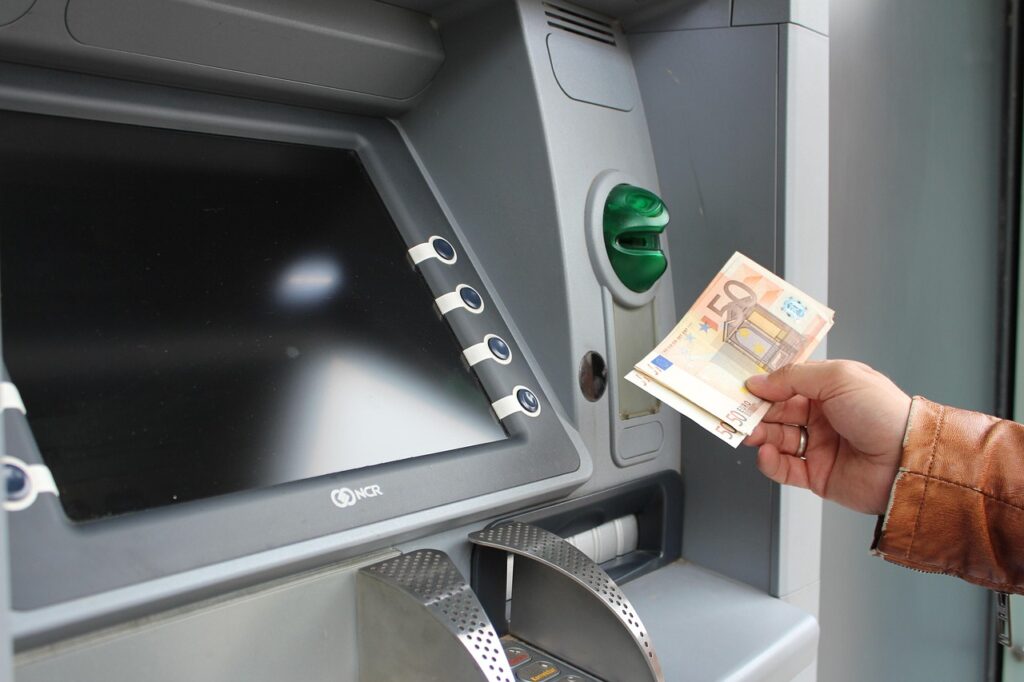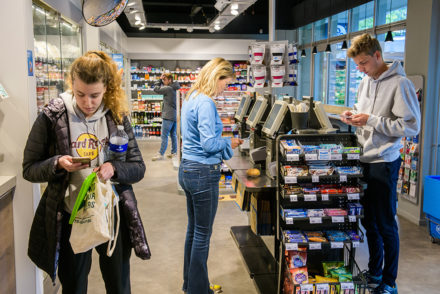‘A wallet? I don’t have that anymore.’ Legislation to prevent cash from disappearing
Cash in your pocket? While the rest of Europe is still devoted to tangible paper and coins, the Dutch prefer to pay digitally. Yet citizens, banks and the government do not want to lose their physical money. New laws should ensure that paying with cash will remain possible in the future.

Anyone who has ever eaten out in one of our neighboring countries surrounding the Netherlands can get the shock of their lives when the bill is presented. The waiter kindly but firmly points to the sign ‘Nur Bargeld bitte’ or ‘Argent liquide seulement’. Now you notice that the sign was there all there time. You feel you’re blushing with shame, because you only have a bank card or phone in your pocket.
In the Netherlands, we are so used to paying digitally that we often no longer have cash in our wallets. In fact, many people don’t even have a wallet anymore.
Only one in five payments at the checkout is in cash, according to recent figures, says Yael Diamant, professor of Financial Networks and European Property Law at Tilburg University. She is also a lawyer at De Nederlandsche Bank (DNB), the Dutch central bank that is also responsible for the circulation of coins and paper money.
Average 35 euros in cash
The Netherlands is a leader in Europe when it comes to digital payments. The average Dutch person has 35 euros in cash with him, reports the news division of Dutch public Broadcaster NOS. The European average is 59 euros.
‘In the Netherlands, we have always had a very good infrastructure for bank card payments and everyone has a lot of confidence in that system,’ Diamant thinks. ‘When I studied in Germany fifteen years ago, I had a bank account with a government bank. With the accompanying card, I couldn’t withdraw money from a commercial bank, while I could withdraw money from both with my Dutch debit card.’
Pay with mobile phone or watch
Young people are even less likely to have money in their pockets. ‘Of all the ‘young people’ in the 12 to 44 age category, only one in six still has cash with them. Young people are paying more and more with their mobile phone or watch. I do that myself, by the way,’ Diamant acknowledges.
It is an easy way to pay and it has become part of our culture, says Diamant. As a result, around 2020 there were only slightly less than five thousand ATMs in the Netherlands, in 2010 there were still more than eight thousand. ‘You can see that due to the increase in digital payments, the ‘cash infrastructure’ is decreasing.’
‘Pin only’
Even those who want to pay with cash in a shop or restaurant in the Netherlands sometimes come across the ‘pin only’ sign, as the Dutch term ‘pin’ has become a synonym for paying digitally. Isn’t that strange, because cash is legal tender, isn’t it? ‘European treaties state that the euro has that status,’ Diamant says, ‘but shopkeepers can still refuse cash by using the ‘pin only’ sign. For retailers, there are disadvantages to cash. Because you have to have a stock of change in cash and store the cash safely in a safe at the end of the day.’
Banks would also rather see coins and paper money disappear at all. Diamant: ‘If you pay cash at a retailer, that money has to go back to the bank at some point. The bank has to count it. Part of this is put in payment terminals, the rest goes to the Dutch Central Bank. All in all, that costs a billion euros on an annual basis.’
Cash remains important
Nevertheless, it remains important that payment can be made with cash. Diamant: ‘For example, there are people who have difficulty with digital payments. And there are people who want to have the money in their wallet, in order to keep a grip on their spending.’
And what about the increasing threat in the world? NATO boss Mark Rutte recently called for emergency packages to be brought in and cash to be kept on hand. “In the event of a major failure in the digital infrastructure, you must be able to rely on cash,” says Diamant.
Although most Dutch people hardly use cash, they do think that you should be able to continue to pay with it. Nine out of ten are in favor of preserving it, according to research conducted in February 2023 among a thousand Dutch people, commissioned by the Dutch Central Bank.
Legislation
The Dutch government and the Dutch Central Bank also believe that cash should be preserved. That is why a new law is in the making. The Currency Payment System Act was sent to the House of Representatives on 21 March 2025.
‘It is important that cash remains available to everyone. And I think this law is a good way to guarantee that for the future,’ says Diamant.
No more ‘pin only’?
There is also a bill that obliges entrepreneurs to accept cash payments of up to three thousand euros. The legislator wants to better tackle money laundering by prohibiting cash payments above this amount. And the European Commission is also working on new legislation. With this, the Commission also wants to arrange that European citizens can pay with cash.
As a result of these measures, the ‘pin only sticker’ could soon disappear from the shop and restaurant door.






